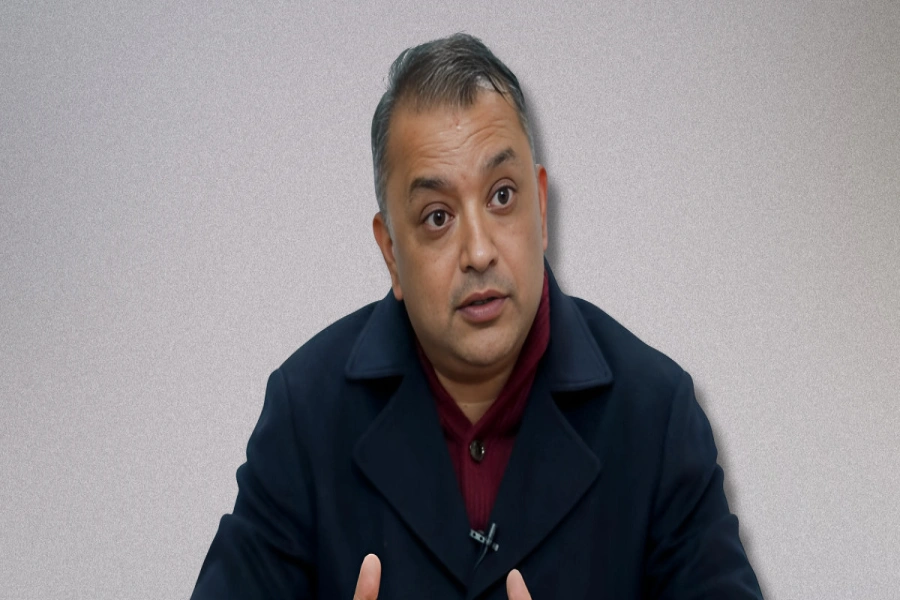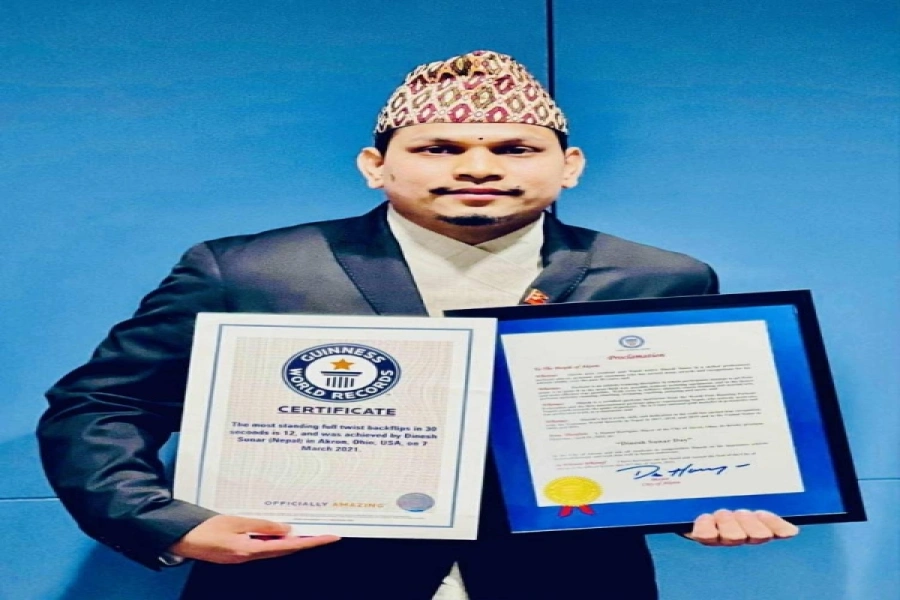The mastery of presenting a concrete object into an abstract form is what makes Ram Krishna Bhandari’s craft noteworthy. He uses unconventional means to express his thoughts on life and learning. Recipient of the Parijat Kala Puraskar (2065), and Desh Bhakta Ganatantrik Samman (2074), Bhandari chose to learn sculpting from his friends and acquaintances. He’s hardly achieved any formal degree in sculpting, but admits enhancing skills working on his own.
The foreign market has been gracefully accepting the artworks that he sells from his shop -- Bhandari Art, and Gallery Sculpture -- located at Chithu, Kirtipur. Apart from working as a sculptor and a painter, he has also authored a book called ‘Akchhar Ma Murtikala’ which was published in 2017.
In an interview with My City’s Sonam Lama, Bhandari shared his four-decade-long experience in art and sculpture.
Big thaw hits Harbin ice sculptures in China

Your father was a veteran painter, how did you find your interest in sculpting?
I grew up watching the arts and painting of my father. His work drew me closer toward painting. However, since sculpture emerged as a new form of art, I was more eager to explore the area. The parental guidance that I received also played a significant role to lead my path into sculpting. My late father was immensely expressive with his works of art, and that was the early motivation that I received. It strongly attracted me into the works of art. It is under his sole guidance and liberal attitude to life that made me go beyond my vision and observation. I believe I have also lived up to my father’s expectation through paintings but the passion for sculpting outweighed the artist in me.
What ideas and mediums do you reflect in your work?
I Usually incorporate stone and wood in my art, as they are easily accessible compared to other materials. Black stone, marble, granite, ammonites are some of the common stones that I prefer sculpting with. Similarly, chap, sisau, halu, daar, Bhimsen pati, and agrath are some types of woods that I use for carving. Besides that, I occasionally sculpt using mud, metal, and cement. Each of my work represents the state of my mind. Be it sarcasm, lamentation, love, hatred or grief, I try to carve the day-to-day incidents and stories of my life.
None of your children have shown interest in sculpting, how do you feel about it?
A high amount of patience is required in the making of an artist. It is not something that should be imposed upon any individual. I believe children should be provided with a freedom to make their own choice to help acknowledge their strengths. Moreover, sculpting was something that naturally drew me in, and I also received full support from my father. It is my duty to provide my children with the environment to nurture their innate skills and choose their individual careers.
How challenging do you find working as a sculptor?
I have injured myself during the sculpting and carving process. I think it is one of the common challenges of work. Since the tools, materials, and equipment that we use are extraordinarily heavy, there are numerous hassles related to transportation of materials including
the wooden logs and boulders. I have been dealing with rheumatism for the past 10 years and that has hindered my work. Nevertheless, if you are willing to work determinately, it has a good market and high monetary value.
How can we ensure the maintenance of the sculptures?
Stone sculptures are easier to maintain than the wooden ones. Wood is more susceptible to moths and demands additional care and cleaning. However, the lightness and glimmering texture of wood have more exterior appeal.
Both have their peculiar strengths and weaknesses, however, a regular cleaning or brushing can always be beneficial to ensure longevity.



































